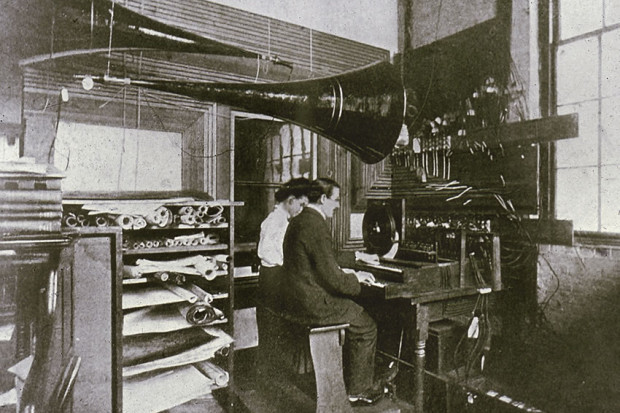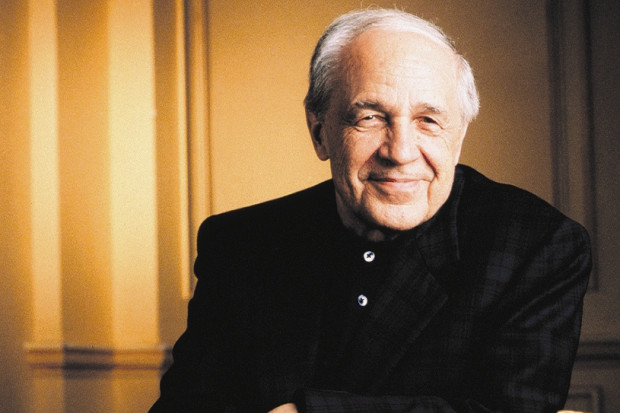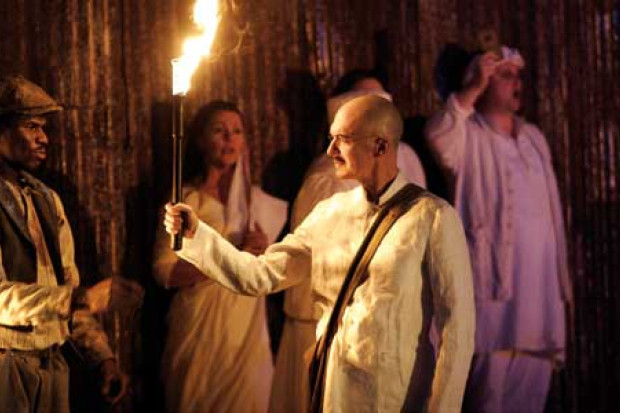Preview: RTÉ Living Music 2004
Helix Arts Centre, Dublin,
20–22 February 2004
The first RTÉ Living Music Festival was held in October 2002 and centred on the music of Berio. That festival presented a satisfying mix of orchestral and chamber music, brought to Ireland international contemporary music performers and conductors of the highest rank, and combined them with the best Irish new music specialists. They played repertoire that stretched from pioneering works of the early twentieth century to recent masterworks of Berio, and on to new work from young Irish composers. It ran from a Friday to Sunday evening and involved not just concerts, but discussions and seminars from performers, musicologists and composers. It was a particularly welcome event given the chequered history of contemporary music festivals in Ireland through the 1980s and 90s.
The good news is that the festival returns this February, and while nearly all of those features just listed return (on the principle that if it’s not broken…), it has if anything tightened its focus on repertoire.
A flagship event
The RTÉ music department (RTÉ Performing Groups), by creating the Living Music Festival, is strengthening immeasurably Ireland’s foothold on the world map of contemporary music. Now we have a flagship event that, by being such a focus for new music, supports and helps to validate the vital work undertaken by all the others on the new music scene in Ireland. If, as this writer understands it is, the festival is due to return on a yearly basis, it will have a lasting and enlivening effect on the whole cultural environment here, for everyone including audiences and practitioners.
This year the festival is themed around French composition and takes a broad historical sweep from the early twentieth century to the twenty-first. As befits a festival of contemporary music the accent is on works that are unknown or rarely heard, both with new commissions and with classics that have never been performed before in Ireland. Raymond Deane, the artistic director of this and the 2002 festival, also takes the opportunity to programme works such as Boulez’s Le marteau sans maître, a piece of great importance in the contemporary canon, yet which has been heard here just once before.
This will also be a festival of French performers, with guest groups and conductors who specialise in new music. Highlights will include the Ensemble Intercontemporain, led by François-Xavier Roth and the Ensemble l’Itineraire, while the NSO and the RTÉ Concert Orchestra will work with French conductors and soloists of international renown.
Early twentieth century works such as Debussy’s Jeux and Satie’s Socrate have been selected partly for their rarity value and partly because of the great influence these pieces had on subsequent composition. In the case of Socrate, this work, which had such a celebrated influence on John Cage, will be receiving its first Irish performance. While that reflects Cage’s fundamental reassessment of what music is, the (counterbalancing) search for coherence in contemporary music is represented by the three main French composers featured in this festival: Boulez, Dusapin and Murail. While at least Pierre Boulez is something of a household name, it is perhaps worth introducing the others here
Murail and Dusapin
Tristan Murail (b. 1947) is best known as the co-founder (along with Gérard Grisey) of the influential compositional technique known as ‘spectralism’. Murail himself has commented that the urge behind spectral music was to rebuild in music a ‘coherent sound world, which was destroyed due to many destructive experiences, such as generalised serialisation on one hand and the aleatory experiments of John Cage, on the other.’ What this involves is the computer-assisted analysis, and subsequent synthesis, of the sound spectra of musical events in order to build up a new basis for harmonic relations in music. It could therefore be characterised as something of a conservative reaction against the likes of Cage and Boulez (but it is necessary to point out that Boulez, at least, foresaw many of the shortcomings of ‘generalised serialisation’ a long time ago). Murail also concerns himself with extrapolating from such analysis the organising principles for the form and fabric of every other aspect of the music, so that this also includes a reassessment of coherence in musical form.
One of the most obvious achievements of spectralism has been to expand electro-acoustic timbre and to more effectively bridge and merge the sounds between acoustic and electronic instruments.
Murail and others have noted that there is not really a ‘spectral school’ of composition, but that nonetheless these procedures have had broad influence on subsequent composition, particularly on younger composers. He has said: ‘this idea of using spectral sound, or timbral sound, as a source for musical inspiration has by now become rather widely used.’ This opens out the discussion (possibly too much!) and allows one to imagine even Boulez as a kind of proto-spectralist, since he and many other (notably French) composers have always composed with the utmost care regarding the continuum of timbre. Those who want to hear what is meant by this only have to make sure they hear Boulez’s Sur incises (Feb 21st, 8pm) in the festival.
Pascal Dusapin (b. 1955) has been described as ‘the most performed living French composer’, but that does not mean that he is in the company of Jarre père et fils! Not a spectralist, Dusapin showed in his earlier works the influence of his teachers Xenakis and Donatoni, his later development transcends them and is marked by a move towards stage and vocal music (including what he calls an ‘operatorio’). Now known for a highly individualist and original style, his pieces have been praised for their powerful structures, audacious conceptions and imaginative sound combinations. His Dona eis on Friday 20th February (5pm) will give us a taste of this aspect of his work, in a concert featuring the National Chamber Choir.
It is clear that the three composers Boulez, Dusapin and Murail pursue very different sets of aesthetic concerns, and their inclusion together in one festival should go some way towards showing the breadth of current French composition. Add to these such diverse voices as Xenakis (Greek and Romanian, but also French!), Dutilleux, Varèse, Aperghis, Lévinas and Satie and you almost have a complete guide to contemporary French music.
As well as the French focus, the festival will feature Irish performers and composers. The Crash Ensemble, and VOX21 (led by David Brophy) will include in their programmes works by Irish composers; three specially commissioned for this event. The names to look out for are Ian Wilson, Jürgen Simpson, Siobhán Cleary, Justin Carroll, Roger Doyle and John McLachlan.
The organisers and artistic director of this festival have, over two festivals within just seventeen months, already established a strong overall pattern that deserves to lead to many successful future editions.
Published on 1 January 2004
John McLachlan is a composer and member of Aosdána. www.johnmclachlan.org












